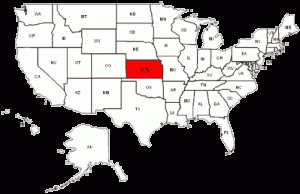Kansas Tax
Kansas State Tax
Kansas Income Tax
 Apart from the federal government, states levy a variety of taxes on its residents. Kansas state taxes include income tax, sales tax, and property tax.
Apart from the federal government, states levy a variety of taxes on its residents. Kansas state taxes include income tax, sales tax, and property tax.
There are 20 states that levy higher income tax rates than Kansas. The marginal tax rates for single filers are sorted in three brackets that range from 3.5 to 6.45 percent. Kansas municipal and school districts are not allowed to impose additional local income tax.
Kansas income tax returns have no personal exemptions or dependent deductions. Taxpayers have two options when filing their returns. They can download their income tax return form and send it to the Kansas Department of Revenue along with a check or money order for payment, or accomplish their forms online and pay their tax with their debit or credit card.
Residents of the State of Kansas pay property tax. At an average of 1.29 percent average property tax rate collected on the fair market value of real properties, the Kansas state property tax is the 25th highest in the United States. The state also collects intangible tax which collects tax on properties such as stocks, bonds, and savings accounts.
Like most states, Kansas collects sales tax on the sale of tangible goods and services in the state. The base state sales tax is 6.3 percent, but counties, cities, and special sales tax jurisdictions are allowed to levy up to 2.35 percent surtax. For instance, the overall sales tax in Topeka consists of the 6.3% Kansas state tax, 1.15% county sales tax, and an additional 1% city sales tax.

